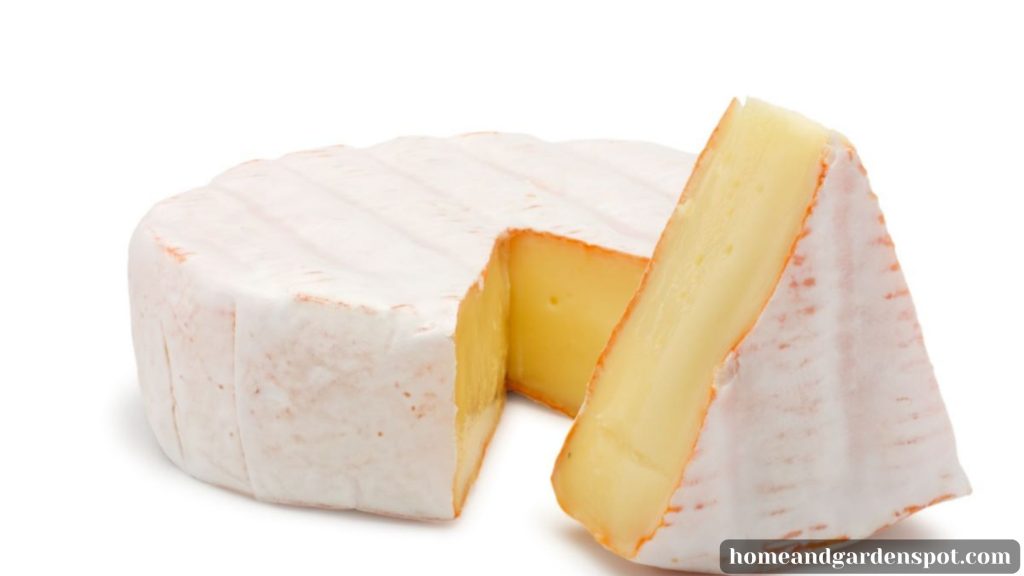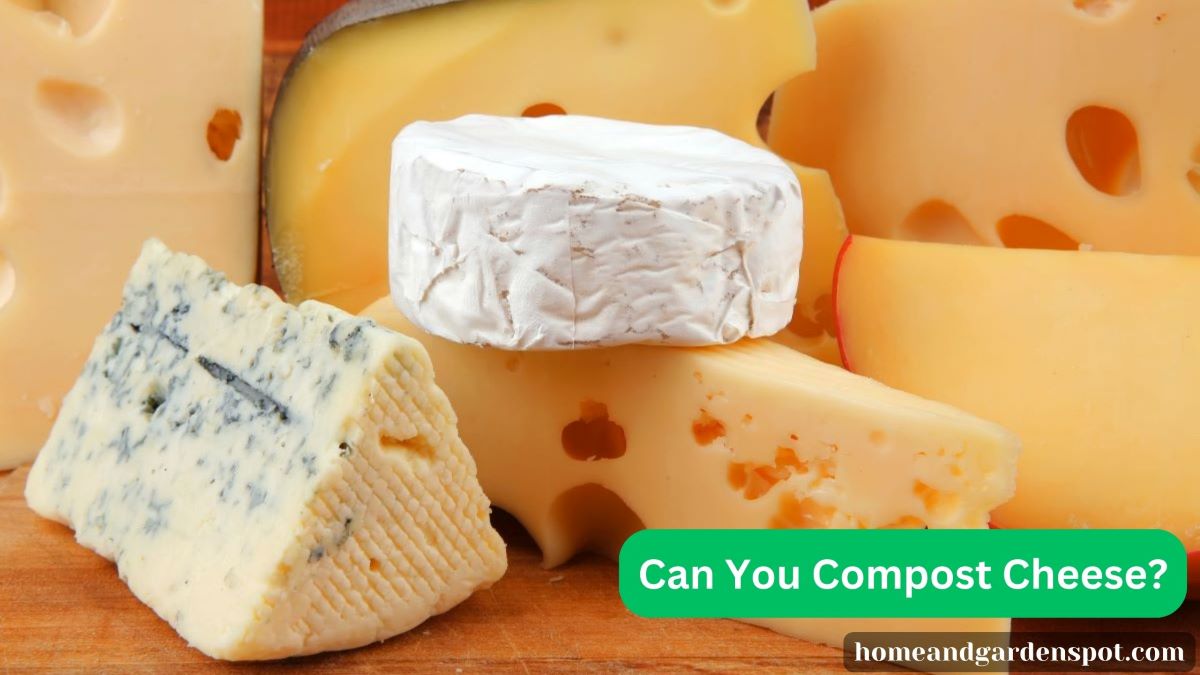Composting is a natural process of recycling organic materials to benefit plants and gardens. As someone who is into living eco-friendly and doing my part for the environment, I’ve had some interesting thoughts about composting. One of those questions that have crossed my mind is, “Can you compost cheese?”
Yes, cheese is a biodegradable item that can be composted, but it also has some drawbacks that may make it unfit for some composting systems. Cheese, like other dairy products, attracts pests like rodents and flies due to its strong odor, and its high-fat content can also slow down the composting process.
However, with the right approach, you can compost cheese successfully. In the sections below, I’ll guide you on how to do that, ensuring you can make the most of composting your cheese while avoiding common issues.
Is Cheese Biodegradable?
Yes, cheese is biodegradable. Biodegradability refers to an item’s ability to naturally break down and decompose over time, returning to its organic components. Cheese, being an organic dairy product, can decompose when exposed to the right conditions and microorganisms. However, it’s essential to compost cheese correctly to facilitate its biodegradation effectively while minimizing potential issues like odors and pests. A little side note, You can also compost eggs!
Cheese Types and Compostability
When considering composting cheese, it’s essential to understand that not all cheese types are equally suitable for the compost pile. The compostability of cheese largely depends on its composition and characteristics. Here’s a breakdown of various cheese types and their compostability:
1. Soft Cheeses
Soft cheeses like cream cheese, ricotta, and cottage cheese contain higher moisture content and are generally more challenging to compost effectively. They can create a slimy or mushy consistency in the compost pile, potentially leading to anaerobic conditions (lack of oxygen) and unpleasant odors. While composting small amounts of these cheeses is possible, balance them with drier, carbon-rich materials like leaves or straw.

2. Hard Cheeses
Hard cheeses such as cheddar, Parmesan, and Swiss have lower moisture content and can be more easily incorporated into compost. Shredded or grated hard cheese can be sprinkled into the compost pile as long as you avoid overloading it with dairy products.
3. Moldy or Spoiled Cheeses
Cheese that has developed mold or gone bad should generally be avoided in compost. Mold can introduce unwanted pathogens to the compost pile, and spoiled cheese may emit unpleasant odors.
4. Processed Cheeses
Processed cheese products, often found in individually wrapped slices, can contain additives and preservatives that may not be ideal for compost. It’s best to limit their use in composting.
5. Dairy-Free Cheese Alternatives
Plant-based or dairy-free cheese alternatives, which don’t contain animal-derived dairy, are generally more suitable for composting. They break down more easily and can provide valuable nutrients to the compost.
Tips to Compost Cheese Safely and Effectively
Here are some tips to compost cheese safely and effectively:
● Do not add too much cheese to the compost bin or pile. A small amount of cheese will not cause much trouble, but a large amount can overwhelm the composting process.
● Use a modern electric composter. These devices can quickly and efficiently turn cheese and other kitchen waste into compost without any odor or pest issues.
● Place the cheese waste in the center of your compost bin or pile. Cover it with other compostable materials, such as leaves, grass clippings, or shredded paper. This will help insulate the cheese and prevent it from being exposed to air or animals.
● Place your compost bin or pile under the sun. The heat from the sun will help speed up the decomposition of cheese and other organic matter. It will also reduce the moisture level in the compost, which can minimize the smell.
How to Compost Cheese
Since cheese is a dairy product, composting it requires tactics. To safely compost your cheese, try out these methods;
Shred and Mix Method
● Break the cheese into small pieces by shredding or crumbling it.
● Mix the shredded cheese thoroughly with other compostable materials, such as fruit and vegetable scraps.
● Ensure an even distribution of cheese throughout the compost pile to prevent clumping.
● Pay attention to moisture levels, as cheese can be damp. Adjust as needed to maintain the right moisture balance in your compost.
● Regularly turn or aerate the compost pile to promote proper mixing and airflow, aiding in decomposition.
Burying method
Here’s a straightforward list of steps for using the Burying method to compost cheese:
- Have your compost pile or bin ready for use.
- Break down the cheese into smaller pieces if possible.
- Dig a hole in your compost pile or bin, creating a space to bury the cheese.
- Put the shredded or crumbled cheese into the hole you’ve dug.
- Cover the cheese with other compostable materials like leaves, yard waste, or kitchen scraps.
- If you have more cheese to compost, repeat the process by digging additional holes and burying it.
- Regularly turn or aerate the compost pile and monitor moisture levels to ensure proper decomposition.
Hot Composting method
- Set up a hot compost pile or bin, ensuring you have a good mix of green (nitrogen-rich) and brown (carbon-rich) materials.
- Break the cheese into small pieces by shredding or crumbling it.
- Mix the shredded cheese with other compostable materials, both greens (e.g., kitchen scraps) and browns (e.g., leaves or straw).
- Layer the cheese and other materials within your compost pile. Ensure even distribution.
- Regularly turn or aerate the compost pile to maintain proper airflow and mix the ingredients. This encourages decomposition.
- Hot composting requires higher temperatures. Use a thermometer to check that the pile heats up adequately (130-160°F or 54-71°C).
- Keep the compost pile adequately moist, similar to a wrung-out sponge.
- Depending on the size of the cheese pieces and your composting conditions, it may take several weeks to several months for the cheese to fully decompose.
Bokashi Method
- Get a Bokashi bin designed explicitly for fermenting food scraps, including dairy products like cheese.
- Break down the cheese into small pieces, making it easier to ferment.
- Place a layer of the shredded cheese in the Bokashi bin.
- Sprinkle Bokashi bran over the layer of cheese. The bran contains beneficial microorganisms that aid in the fermentation process.
- Use a plate or press to compact the cheese layer, expelling air. Seal the bin tightly with a lid.
- Continue layering shredded cheese and Bokashi bran until the bin is full. Seal each layer thoroughly.
- Allow the bin to ferment for about two weeks, during which time the cheese will break down and become pickled.
- After fermentation, bury the pickled cheese and Bokashi remnants in the garden or a designated composting area.
- It may take a few weeks or more for the buried cheese to decompose in the soil fully.
Can You Compost Cheese Wax?
No, composting cheese wax is not recommended due to its paraffin and microcrystalline content. Although biodegradable, attempting to compost cheese wax will take a long time to break down, if it breaks down at all.
It’s often easier and more practical to dispose of cheese wax in your regular waste collection or explore alternative recycling options if available in your area.
Does Cheesecloth Compost?
Cheesecloth is biodegradable and can be composted as they are mostly made from natural materials like linen or cotton. However, the decomposition process for cheesecloth may take longer than other organic materials like food scraps or leaves because the fabric is typically quite thin.
To compost cheesecloth effectively, proper aeration and moisture levels in your compost pile or bin will also contribute to the decomposition of cheesecloth and other organic matter.
FAQs
Can You Compost Soft Cheese?
Yes, you can compost soft cheese, but it’s important to do so with caution. It’s advisable to mix it with materials like kitchen scraps, leaves, or shredded paper to help balance the moisture levels.
What Are 3 Things You Shouldn’t Compost?
Three things you shouldn’t compost include meat and dairy products, diseased plants, and non-organic materials like plastics, metals, and synthetic chemicals.
Can Butter Be Composted?
Butter is not ideal for composting due to its high-fat content, which can lead to odor issues, attract pests, and slow down the decomposition process. While small amounts may eventually break down in a well-maintained compost pile, it’s generally recommended to avoid composting butter.
Conclusion
Finally, you can compost cheese, although with caution. Cheese is a dairy product, and like other dairy products with high-fat concentrations, it tends to attract pests and flies. Therefore, follow the tips I have provided in the article and explore methods such as shred and mix, bokashi, hot composting, and burying methods. Adhering to the tips and being cautious will harness the benefits of composting for your garden while minimizing potential issues.

Leave a Reply